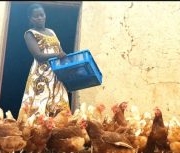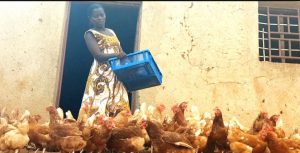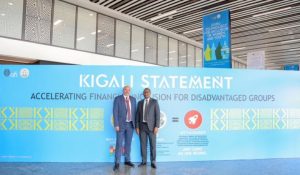Cotton Ginners Strive to End Middlemen Dilemma
Madi Okollo. Authorities in Madi-Okollo District in West Nile are working out a strategy to enhance financial benefits from cotton farming by eliminating middlemen.
The concerted strategy is being championed by Gulu Agricultural Development Company (GADC), a private entity running the cotton ginnery at Rhino Camp trading centre.
The development of the strategy follows an outcry from about 3,000 cotton farmers in the district. The farmers decried exploitation by the middlemen.
John Onenarach, the ginnery manager, said the firm recently recruited area coordinators who will work with field officers as buying agents to eliminate the middlemen.
“What we have done is to task all our coordinators and field officers to be our buying agents. We normally tell farmers that if they are ready, we can give them an option of organising themselves into a group, and we deliver the cotton directly to the ginnery at no extra cost,” Onenarach said.
The decision was taken after several farmers complained of middlemen buying their cotton at Shs1,200 per kilogram instead of the Shs1,500 offered at the ginnery.
Speaking to our reporter, Mustafa Aniku Ismail, a resident of Ndiova village in Rhino Camp sub-county, said it has become a habit for middlemen to flood villages yet their price offering is always an insult to the farmers.
“I planted two acres of cotton last season but later regretted why I sold my cotton to middlemen because they bought it at Sh1,300 per kilogram as opposed to Sh1,700 at the factory last season. My colleagues who sold their cotton directly to GADC made more money and this demoralised me so much,” said Aniku.
He said middlemen exploit farmers in need of quick money.
As middlemen hit and leave farmers feeling cheated, disillusionment sets in as they rue cotton farming for low returns. Most of them begin to look to other crops for hope.
“Most farmers have reduced their cotton acreage with others shifting to growing Simsim and cassava because they feel cheated. From the 1.5 acres of cotton I planted last season, I have come down to only one acre because I feel the money I’m getting from cotton alone will not be enough to pay my children’s school fees and also solve other problems,” Pius Lema, another farmer from Rigbo Sub County.
Alfred Mawa, the councilor representing Rhino Camp sub-county, said farmers have been grappling with the challenges for long, adding that time has come for the government to come in to regulate the operations of GADC and the middlemen.
Onenarach, the ginnery manager, said the middlemen quote their own price and come weighing scales. He said their move to train farmers and employ field coordinators as buying agents will remove the burden of the middlemen.
He said the field coordinators are currently visiting all the cotton-growing parishes in the WestNile region with the aim of talking to farmers’ cooperatives and groups.
“Through that channel, we are bringing services closer to farmers in terms of training. We are telling farmers through our area coordinators to try to avoid the middlemen who are luring them with quick cash and moving around with fake weighing scales,” said Onenarach.
Sale of seeds
Pius Lema, another farmer from Rigbo Sub County, said when GADC took over the ginnery in 2016, it gave farmers freed seeds and people worked hard to produce cotton.
However, the decision by the company to start selling seeds at Shs3,000 per kilogram has shocked farmers.
“At that time, GADC was giving cotton seeds for free and farmers were really making money but when they started selling the seeds, coupled with the coming of middlemen, things have turned bad for us,” Lema said.
GADC defended the decision to charge for the seeds, saying it is aimed at making farmers own cotton farming, pay more attention to their farms, and to encourage them to farm as a business.
Background
The Uganda Development Bank sold the ginnery to GADC in 2016, thus beginning a new lease of life for the Rhino Camp ginnery that had been dormant since early 2000.
Optimism has dramatically returned as the 40 gin machines have become operational once again, in the process providing over 120 direct job opportunities to the people during the cotton harvest and ginning period.
The post Cotton Ginners Strive to End Middlemen Dilemma appeared first on The Cooperator News.





